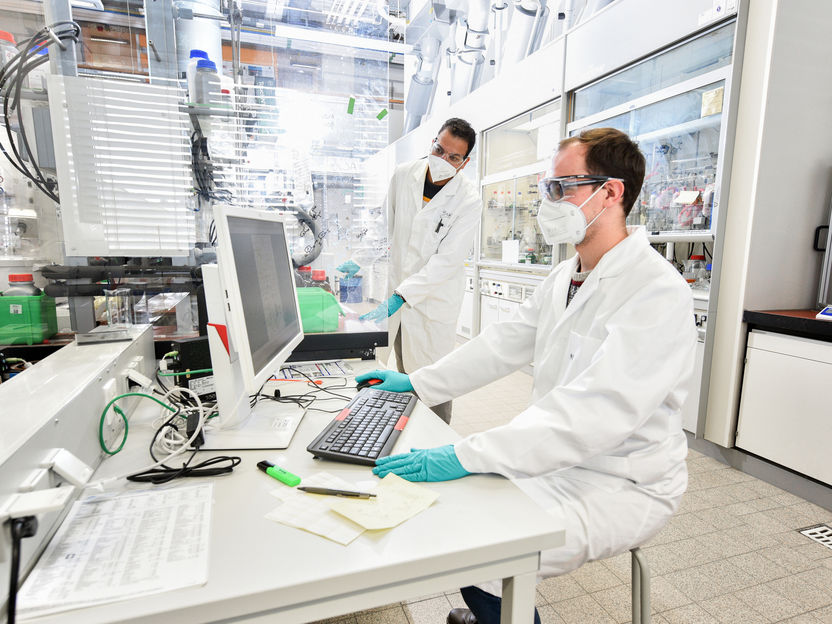Homogeneous hydrogenolysis reaction with molecular palladium catalyst
New method enables simple tritium labeling and could provide added value to the discovery and development of pharmaceuticals
Advertisement
tritium 3H, a radioactive isotope of hydrogen, is commonly used in medicinal chemistry as a label to follow the course of a drug in the human body. Chemists like to use the technique to evaluate drug candidates and their metabolism. However, synthesis of the radiolabeled molecules is challenging.

The new tritiation reaction is practical and robust to execute and could have an immediate impact in the discovery and development of pharmaceuticals.
© Frank Vinken / MPI für Kohlenforschung
A team led by Professor Tobias Ritter of the Department of Organic Synthesis at the Max-Planck-Institut für Kohlenforschung has now found a new way to label complex small molecules with tritium. In a joint research project with the development department of the Swiss pharmaceutical company Roche, they investigated ways to incorporate tritium into pharmaceuticals and other similar molecules that may be important derivatives for the drug industry.
The team took advantage of the special properties of arylthianthrenium salts that they developed two years ago. The thianthrene group can be introduced into pharmaceuticals selectively and at a late stage in a direct and predictable manner. "The unusual feature of this work is the reaction of arylpseudohalides with hydrogen, catalyzed for the first time by a homogeneous catalyst," explains Tobias Ritter. "Such reactions were previously unknown with conventional groups that can be introduced into pharmaceuticals. Normally, chemists use heterogeneous catalysts but those also often destroy other functional groups, which are frequently found in pharmaceuticals," the director annotates. The new approach does not require an inert atmosphere or dry conditions, making it practical to use.
Original publication
Other news from the department science

Get the chemical industry in your inbox
By submitting this form you agree that LUMITOS AG will send you the newsletter(s) selected above by email. Your data will not be passed on to third parties. Your data will be stored and processed in accordance with our data protection regulations. LUMITOS may contact you by email for the purpose of advertising or market and opinion surveys. You can revoke your consent at any time without giving reasons to LUMITOS AG, Ernst-Augustin-Str. 2, 12489 Berlin, Germany or by e-mail at revoke@lumitos.com with effect for the future. In addition, each email contains a link to unsubscribe from the corresponding newsletter.































































